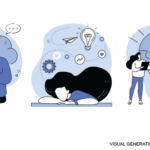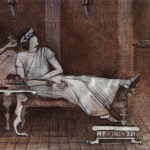Implications
For whatever reason, Janusian thinking is not in the conscience of healthcare professionals, or, for that matter, pop culture. Perhaps it’s because an army of consultants has made creativity a corporate process—such phrases as “think outside the box” and “there are no wrong answers” come to mind.5 Perhaps it’s because our bandwidth is becoming more and more occupied by everyday tasks that we don’t have the mental space to hold two contradictory concepts in our minds simultaneously.6 Or perhaps it’s because, in these trying times, we are trying to hold on to what is familiar.7
Regardless, I think we should set an agenda that promotes Janusian thinking, particularly in medical education. Diagnostic reasoning remains very much a gray area, one in which much research and innovation are taking place.8 Figuring out ways to promote Janusian thinking in rheumatology fellowship is a natural starting point. In the clinic, if we are not doing so already, perhaps we should prompt our fellows to think of contradictory diagnoses that patients can hold at the same time, and then identify next steps to evaluate how both contradictory diagnoses can coexist. I recognize the heterodox nature of this suggestion. Occam’s razor (i.e., plurality is not to be assumed without necessity) is a foundation of diagnostic reasoning.9 But maybe, in Janusian style, it’s time to rethink that assumption while simultaneously holding onto tradition. Feedback and formative evaluation are also rife for exploration using Janusian thinking. After all, feedback is meant to not only foster growth among learners but also to simultaneously reassure them about the degree to which they are progressing.10 Ensuring that both needs can be satisfied at the same time is no easy feat, yet is vital to maintaining high quality of feedback. Personally, as an educator, I often find myself on this tightrope and have been practicing how to resolve this contradiction. I imagine many others of you have as well.
As our community rightfully extends our focus into efforts for diversity, equity and inclusion, we should also embrace this Janusian thinking. How can we meaningfully promote our ideals of unity in diversity?11 Certainly, our world family has been asking this question for thousands of years, and we are tasked with that question today. How can we champion inclusiveness in a world that values exclusivity?12 How can we use our sense of privilege to promote equity?13 How do we reconcile the problematic history that we share with the aspirational future we seek to develop?


